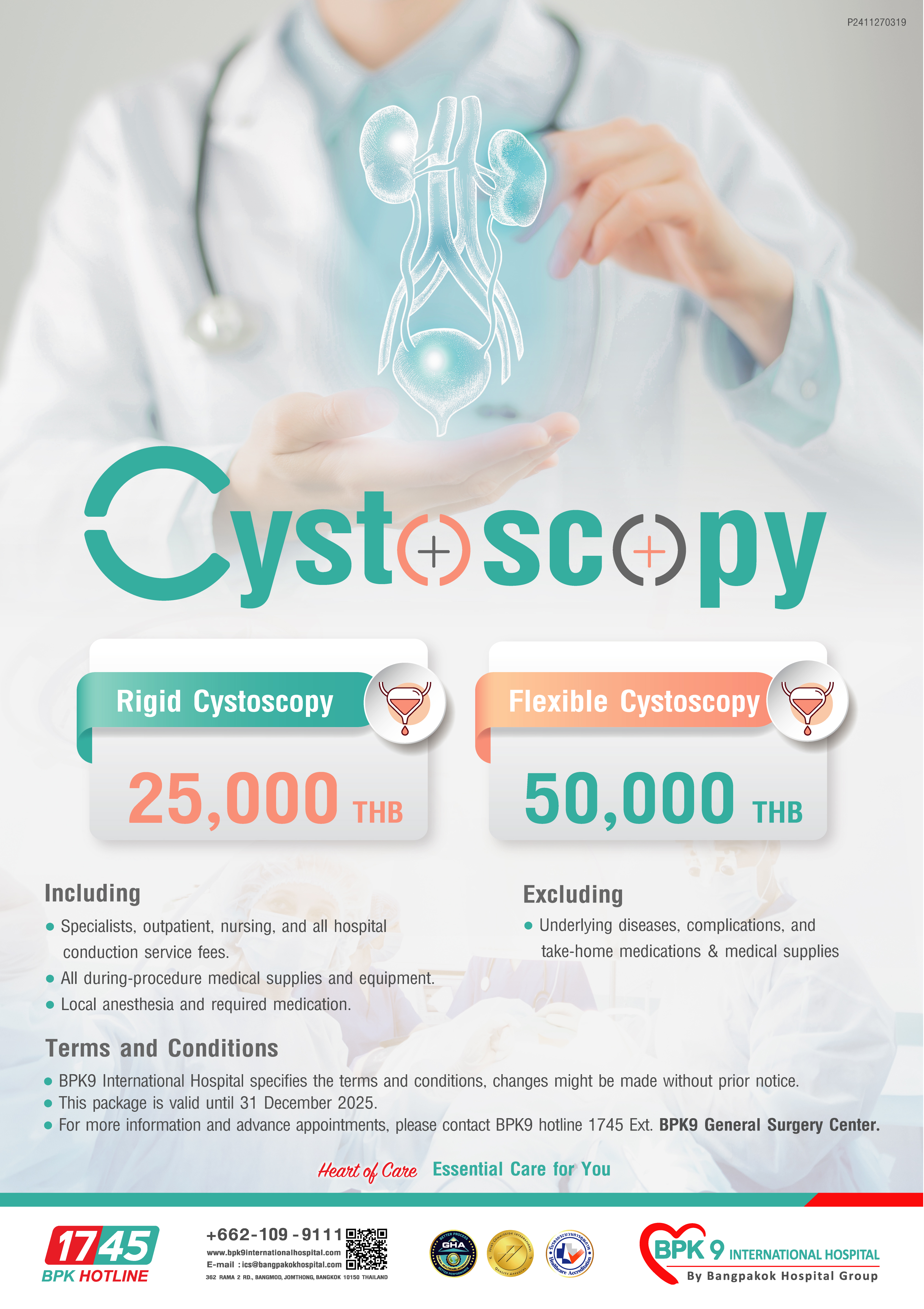Cystoscopy

Cystoscopy is a procedure that allows urologists to examine the lining of your bladder and the tube that carries urine out of your body called the urethra and tailor proper treatment plans for diseases or disorders of the urinary bladder and urethra. A hollow tube of a cystoscope equipped with a lens is inserted into your urethra and slowly directed and advanced into your bladder to investigate and pinpoint any abnormalities inside there. It can be done with the use of local anesthesia or sedation. Another option is to have a cystoscopy conducted in the hospital during general anesthesia. A diagnostic cystoscopy usually takes about five to 10 minutes. The procedure may take longer if you’re having a biopsy or treatment.
There are two types of cystoscopes:
Flexible cystoscope: Your provider may use a bendable scope to gently follow the natural path of your urethra and examine the inside of your bladder and urethra.
Rigid cystoscope: These cystoscopes don’t bend. Your provider may pass instruments through the tube to perform biopsies or remove tumors. This cystoscope is usually only used with sedation or general anesthesia. Urologists will use the one that works best for your specific procedure.
Purposes of a cystoscopy
Cystoscopy diagnoses, monitors, and treats conditions affecting the bladder and urethra.
- To investigate the causes of signs and symptoms in your urinary bladder and urethra.These can include blood in the urine (hematuria), incontinence, overactive bladder, and painful urination (dysuria). A cystoscopy also helps determine the cause of frequent urinary tract infections.
- To diagnose bladder diseases and conditions.It efficiently helps detect bladder cancer, stones, and inflammation (cystitis), Bladder or urethral cancer, Bladder control problems (urinary incontinence/leaking pee), enlarged prostate (benign prostatic hyperplasia/BPH), interstitial cystitis/bladder pain syndrome (ICS/BPS), urethral strictures and urinary fistulas, urinary tract infections (UTIs), etc.
- To treat bladder diseases and conditions.With this modern medical equipment, urologists use special tools to treat urinary bladder disorders which can be passed through the cystoscope to treat certain conditions. Like, tiny bladder tumors might be removed during cystoscopy, and removal of minute bladder stones in the urethra.
- To treat an enlarged prostate.A cystoscopy can reveal a narrowing tract of the urethra where it passes through the prostate gland, indicating an enlarged prostate (benign prostatic hyperplasia).
The minimal and potential risks or complications of a cystoscopy
A cystoscopy is a relatively low-risk procedure, potential complications may include: infection (UTI), bladder spasms (painful cramps and leaking pee), damage to your bladder, and damage to your urethra, like scarring or narrowing.
About the package:
Including
- Specialists, outpatient, nursing, and all hospital conduction service fees.
- All during-procedure medical supplies and equipment.
- Local anesthesia and required medication.
Excluding
- Underlying diseases, complications, and take-home medications & medical supplies
Terms and Conditions
- BPK9 International Hospital specifies the terms and conditions, changes might be made without prior notice.
- This package is valid until 31 December 2025.
- For more information and advance appointments, please contact BPK9 hotline 1745 Ext. BPK9 General Surgery Center.

